
We dedicate this book to our readers.
We are perpetually wowed by your vigor and
grateful for your attention.
Contents
Guide

iStock.com/MrPlumo
Ten years ago, as we were about to publish a book called Freakonomics, we decided to start a companion website. It was called, unimaginatively, Freakonomics.com. The site happened to offer a blogging function.
Levitt, who is always a few years behind, had never heard of a blog, much less read or written one. Dubner explained the idea. Levitt remained unconvinced.
Lets just give it a try, Dubner said. It was so early in our partnership that Levitt hadnt yet come to understand that those six words were Dubners way of getting him to do all sorts of things he never intended to do.
So we gave the blog a try. Heres the first post we wrote:
Unleashing Our Baby
Every parent thinks he has the most beautiful baby in the world. Evolution, it seems, has molded our brains so that if you stare at your own babys face day after day after day, it starts to look beautiful. When other peoples children have food clotted on their faces, it looks disgusting; with your own kid, its somehow endearing.
Well, weve been staring at the Freakonomics manuscript so much that it now looks beautiful to uswarts, clotted food, and all. So we started to think that maybe some people would actually want to read it, and after reading it, might even want to express their opinions about it. Thus, the birth of this website. We hope its a happy (or at least happily contentious) home for some time to come.
And it has been a happy home! Our blog writing tends to be more casual, more personal, more opinionated than how we write our books; we are just as likely to float a question as to give a concrete answer. Weve written things we only thought halfway through and later regretted. Weve written things we did think through but also later regretted. But mostly, having the blog gave us good reason to stay curious and open about the world.
Unlike that first post, the vast majority of the blog entries were written by just one of us, not the pair, as in our book writing. We sometimes asked friends (and even enemies) to write for the blog; weve held quorums (asking a bunch of smart people to answer a tough question) and Q&As (with people like Daniel Kahneman and a high-end call girl named Allie). For several years, The New York Times hosted the blog, which gave it a veneer of legitimacy that wasnt quite warranted. But the Times eventually came to its senses and sent us off to do the thing we do, once more on our lonesome.
All these years, we routinely asked ourselves why we kept blogging. There was no obvious answer. It didnt pay; there wasnt any evidence the blog helped sell more copies of our books. In fact it may have cannibalized sales, since every day we were giving away our writing. But over time we realized why we kept at it: our readers liked reading the blog, and we loved our readers. Their curiosity and ingenuity and especially their playfulness have kept us at it, and in the pages to follow you will see ample evidence of their spirit.
Occasionally a reader would suggest that we turn our blog writing into a book. This struck us as a colossally dumb ideauntil, one day not long ago, it didnt. What changed? Dubner was dropping off one of his kids at summer camp in Maine. In the middle of nowhere, they came upon a huge Poland Spring water-bottling plant. Having grown up in the middle of nowhere himself, Dubner had always thought it strange that so many people would pay good money for a bottle of water. And yet they do, to the tune of roughly $100 billion a year.
Suddenly a book of blog posts didnt seem so dumb. So in the tradition of Poland Spring, Evian, and other hydro-geniuses, weve decided to bottle something that was freely available and charge you money for it.
To be fair, we did go to the trouble of reading through the whole blog and picking out the best material. (It was gratifying to find that among eight thousand mostly mediocre posts, we actually had some good ones.) We edited and updated the posts as necessary, arranging them into chapters that make book sense. Chapter One, for instance, We Were Only Trying to Help, addresses the abolition of academic tenure, alternatives to democracy, and how to think like a terrorist. Limberhand the Masturbator and the Perils of Wayne is about names that are strange, fitting, or strangely fitting. When Youre a Jet... shows that once you start thinking like an economist, its hard to turn it offwhether the subject is baby formula, animated films, or rancid chicken. Along the way, you will learn more than you ever wanted to know about our personal obsessions like golf, gambling, and the dreaded penny.
It has given us gargantuan pleasure over the years to put our warped thoughts into writing. We hope you enjoy peeking inside our heads to see what its like to view the world through Freakonomics-colored glasses.

iStock.com/kumdinpitak
Some of the best ideas in historynearly all of them, in factsounded crazy at first. That said, a lot of crazy-sounding ideas truly are crazy. But how do you find out? One of the best things about having a blog is that youve got a place to run your craziest ideas up the flagpole and see just how quickly they get shot down. Of all the posts weve ever written, the first one in this chapter generated the quickest, loudest, angriest response.
If You Were a Terrorist, How Would You Attack?
(SDL)
The TSA recently announced that most airplane carry-on restrictions will stay in place for now, although the ban has now been lifted on cigarette lighters. While it seems crazy to keep people from bringing toothpaste, deodorant, or water through security, it didnt seem so strange to ban lighters. I wonder whether the lighter manufacturers were lobbying for or against this rule change. On the one hand, having twenty-two thousand lighters confiscated per day would seem good for business; on the other hand, maybe fewer people will buy lighters if they cant travel with them.
Hearing about these rules got me thinking about what I would do to maximize terror if I were a terrorist with limited resources. Id start by thinking about what really inspires fear. One thing that scares people is the thought that they could be a victim of an attack. With that in mind, Id want to do something that everybody thinks might be directed at them, even if the individual probability of harm is very low.
Humans tend to overestimate small probabilities, so the fear generated by an act of terrorism is greatly disproportionate to the actual risk.
Also, Id want to create the feeling that an army of terrorists exists, which Id accomplish by pulling off multiple attacks at once, and then following them up with more shortly thereafter.
Third, unless terrorists always insist on suicide missions (which I cant imagine they would), it would be optimal to hatch a plan in which your terrorists arent killed or caught in the act, if possible.
Fourth, I think it makes sense to try to stop commerce, since a commerce breakdown gives people more free time to think about how scared they are.
Next page
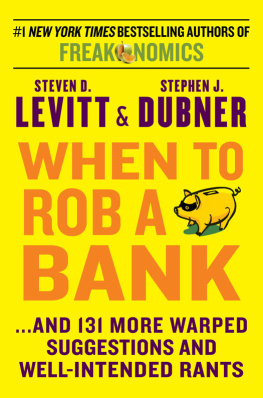
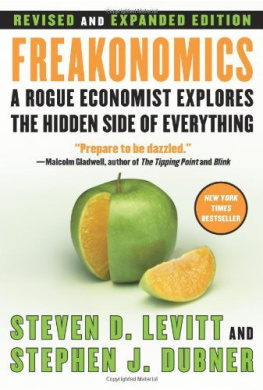
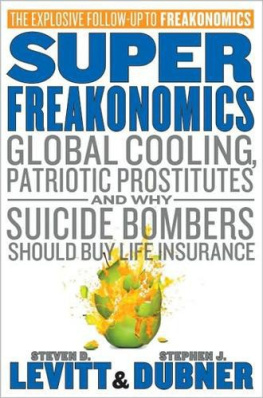


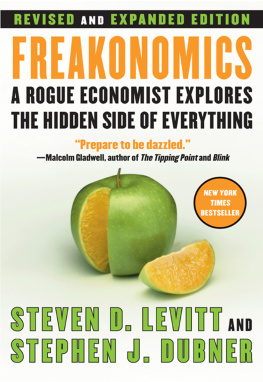

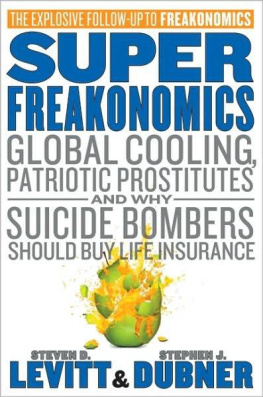
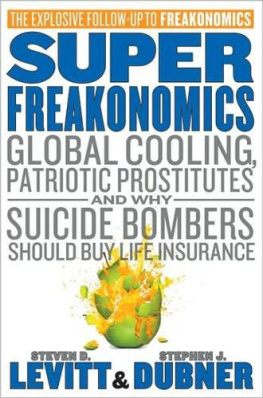
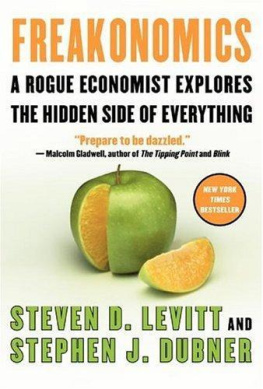
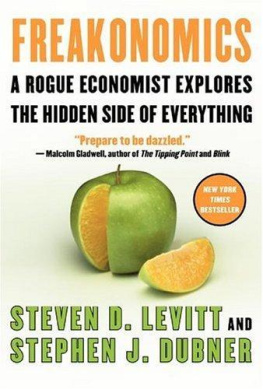
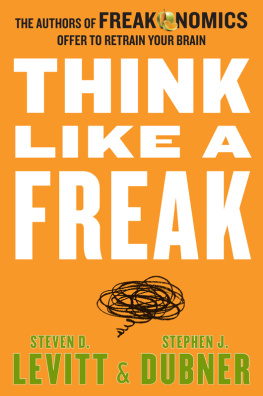
![Dubner Stephen J. - Super freakonomics : [global cooling, patriotic prostitutes and why suicide bombers should buy life insurance]](/uploads/posts/book/76604/thumbs/dubner-stephen-j-super-freakonomics-global.jpg)


